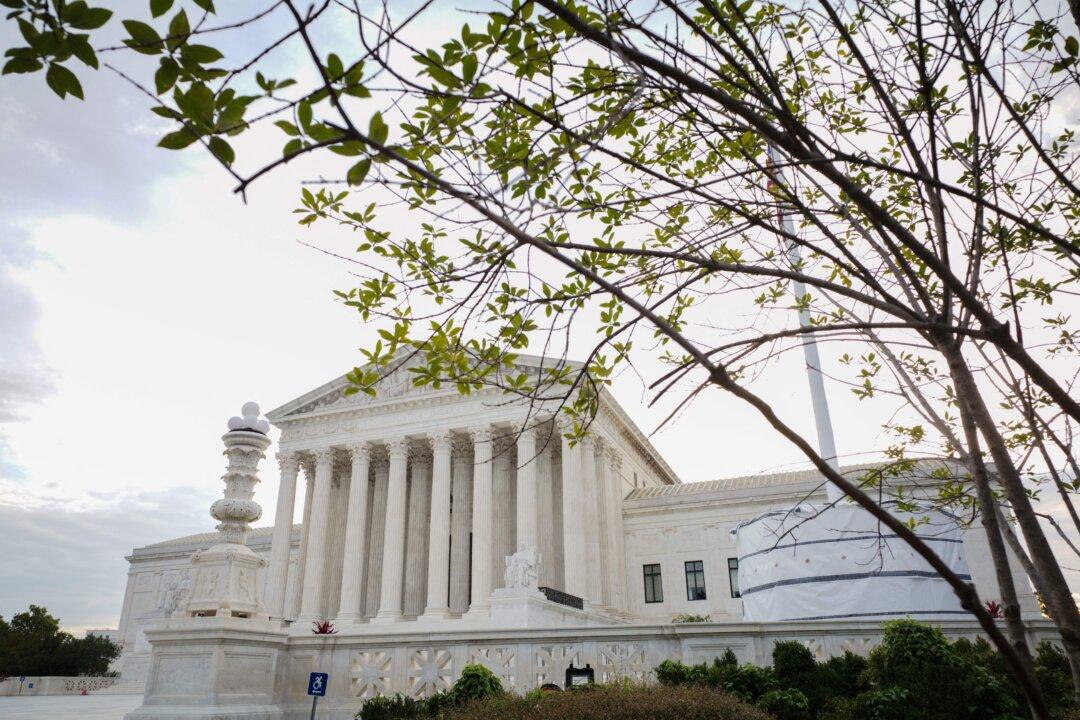The Supreme Court on Oct. 4 opened a new term that’s filled with crucial cases on how much access to abortion can be restricted and whether New York state infringed on the Second Amendment.
Chief Justice John Roberts opened the term by noting that Justice Brett Kavanaugh was participating remotely. Kavanaugh tested positive for COVID-19 last week, although a court spokeswoman said his family members all tested negative and that he was showing no symptoms.





